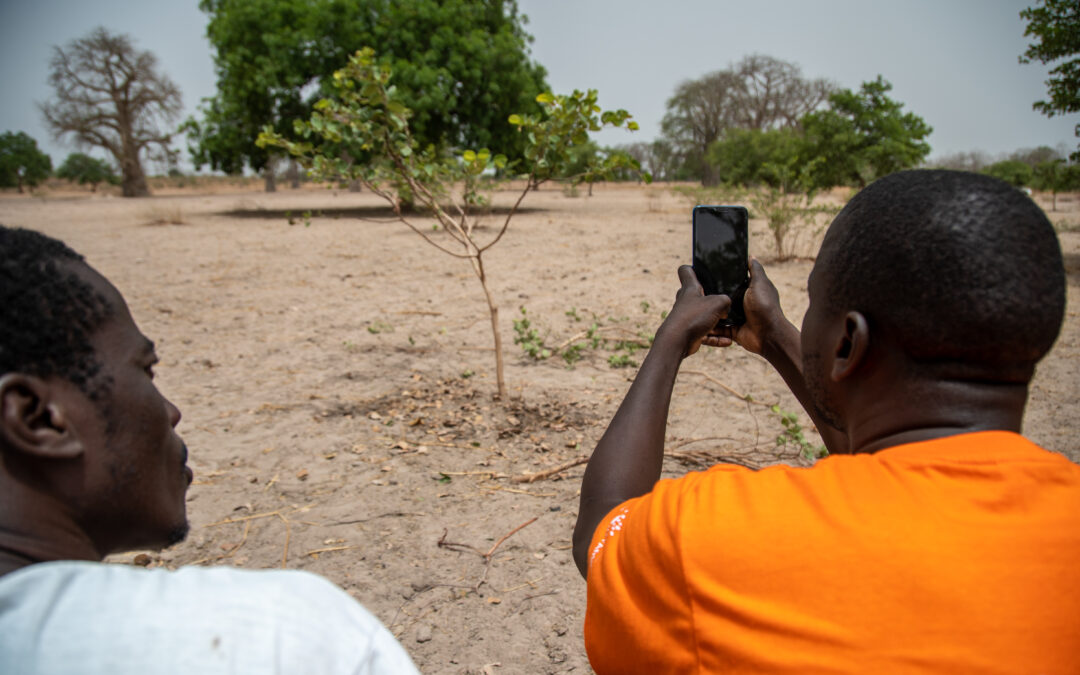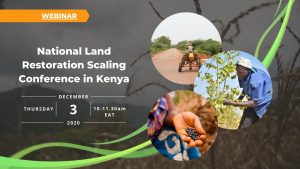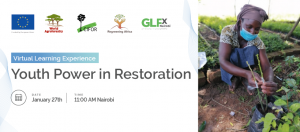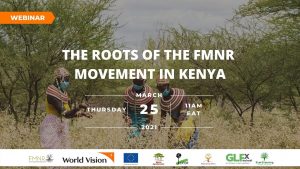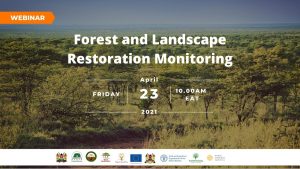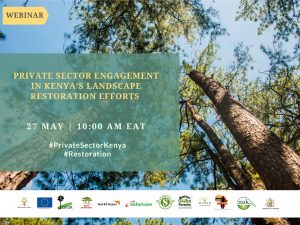National land restoration scaling conference in Kenya
Kenya has made major commitments to international agreements on land restoration, climate change, and biodiversity, because there is widespread appreciation among the leadership and citizenry that it is important to address these challenges. This webinar helped foster better synergies between initiatives, agree on areas for coordinated implementation and monitoring, and create mechanisms that will better harness the collective strengths of government with non-government organizations, research and the private sector to move collectively towards addressing the national challenges and meeting the commitments.
Youth power in restoration
Kenyan youths have over the years been playing a crucial role in landscape restoration. The youth highlighted the need for meaningful partnership to implement restoration activities with state, local, national and global partners, to have income generating restoration initiatives that provide them with sources of livelihood while restoring degraded landscapes and to have access to knowledge and technology through capacity building that helps them address real-world challenges.
Roots of Farmer Managed Natural Regeneration (FMNR) movement
The discussions on this webinar revolved around the evolution of FMNR in Kenya from an indigenous practice to a movement for restoring livelihoods, food security, social cohesion, and landscapes across the country. A proposal to create an FMNR movement was also tabled to help organizations working on FMNR to network and synergize their efforts as they upscale to other different parts of Kenya where FMNR has not yet been introduced.
Forest landscape restoration monitoring and reporting
As the world marked the launch of the United Nations Decade for Ecosystem Restoration, questions are rightly being asked about how do we know if we’re succeeding or not in restoring the millions of hectares of degraded land that have been committed by countries globally. A joint national working group for forest landscape restoration monitoring and reporting webinar, shared ways to develop a shared vision for an integrated restoration monitoring and reporting framework and accompanying mechanism for Kenya. As a way forward, there is a need to have a master plan and have it implemented at the field level. There is also a need to have in place a national monitoring framework platform that is beyond project timelines.
Kenya’s private sector engagement in landscape restoration
Enterprise solutions in landscape restoration are a way for the private sector to pay back to the environment. In an engaging and informative webinar on Kenya’s private sector engagement in landscape restoration, the private sector actors in Kenya showcased their efforts and contributions to the government’s commitment to restore 5.1 million hectares of land in the country by 2030. They showcased ways in which the private sector can upscale their efforts, tackle challenges they face as they engage in landscape restoration as well as attract more private sector actors who are not yet involved in the restoration movement to join.
Training resources and capacity building needs for landscape restoration in Kenya
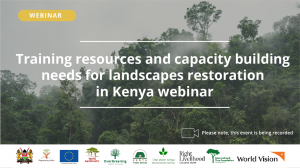 This webinar as aimed at discussing the training and capacity-building needs of all organizations who are committed to the achievement of Kenya’s target to restore at least 5.1 million hectares by 2030. It also demonstrated how the network of public, private and community organizations that is forming to collaborate in landscape restoration can identify best practices and methodologies for implementing cost-effective and efficient scaling of restoration, and strengthen their respective technical capacities to implement restoration. A capacity-building needs assessment survey/tool was showcased that has been developed to help organizations assess their capacity and future plans for building capacities, and share information that can assist the community of organizations to work jointly to implement restoration.
This webinar as aimed at discussing the training and capacity-building needs of all organizations who are committed to the achievement of Kenya’s target to restore at least 5.1 million hectares by 2030. It also demonstrated how the network of public, private and community organizations that is forming to collaborate in landscape restoration can identify best practices and methodologies for implementing cost-effective and efficient scaling of restoration, and strengthen their respective technical capacities to implement restoration. A capacity-building needs assessment survey/tool was showcased that has been developed to help organizations assess their capacity and future plans for building capacities, and share information that can assist the community of organizations to work jointly to implement restoration.

